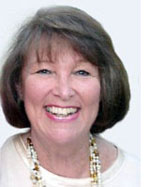|
By Cynthia Citron
 LOS ANGELES—Morlan Higgins is one of my favorite actors currently working in L.A. theater. I’ve never given him anything but a rave review. And this is another one. LOS ANGELES—Morlan Higgins is one of my favorite actors currently working in L.A. theater. I’ve never given him anything but a rave review. And this is another one.
As a lonely and troubled widower in Irish playwright Colin McPherson’s mesmerizing Shining City, Higgins pours out his guilt and his angst to therapist William Dennis Hurley. (These two also worked brilliantly together in 2005 in the world premiere of Athol Fugard’s stunning Exits and Entrances.) In Shining City, which takes place in superstitious, Blarney-ridden Dublin, Higgins believes he is being haunted by his wife’s ghost. He is, instead, actually haunted by the fact that he had become restless and indifferent to her in the last years of their marriage. She has recently been killed in a taxi accident, and Morlan grieves that he “didn’t even know where she was going---or coming back from.”
After confessing that he and she had stopped communicating with each other, Higgins twitches and weeps through a 16-page monologue about the decay of their marriage and his accelerating descent into apathy. It’s an amazing feat, and Higgins accomplishes it without losing the audience’s rapt attention for even a moment.
During this monumental recitation Hurley sits immobile, just listening attentively and occasionally offering a brief word of encouragement. His task of being silent, engaged and concerned is nearly as difficult to carry off as Higgins’ long emotional narrative.
Go to top of next column
| |
Hurley, in fact, has problems of his own. A troubled young man who has voluntarily left the priesthood, he is also in the process of leaving the woman he has been living with and who has borne his child. She (Kerrie Blaisdell) turns up suddenly at his new half-unpacked digs to plead with him to come home. He responds that he will provide everything necessary for her and their daughter, but he doesn’t want to be with her anymore. At this point, her distress turns to anger and they engage in a brutal shouting match that, like every other conversation in this engrossing play, has the bitter ring of truth to it.
There is a skewed sexual element in this play as well. In Higgins’ case it involves his quest for a “connection” with a woman, rather than actual sexual intimacy. In Hurley’s, his loss of faith in God is accompanied by doubts about himself and his capacity for love, and he engages in a brief and moving homosexual interaction with a man he meets in a park. Benjamin Keepers plays the role of the money-strapped prostitute with a soft sensitivity that perfectly tempers Hurley’s tense awkwardness.
Shining City, like most of McPherson’s award-winning plays and films, (most notably The Weir and The Seafarer), is a nearly two-hour talkathon. But director Stephen Sachs, co-artistic director of the invariably outstanding Fountain Theatre company, has staged this series of conversations with such a fine dramatic flair that you barely notice the dearth of physical activity. Sach's direction brought forth a nuanced performance from his cast -- all the more remarkable because as a Jew, Sachs had neither Irish nor Catholic background to draw upon, only the universality of the inner characters. In "Shining City" the talk is all, and incredibly excellent talk it is!
The Los Angeles premiere of Shining City will continue at The Fountain Theatre, 5060 Fountain Avenue, in Los Angeles Thursdays, Fridays, and Saturdays at 8 p.m. and Sundays at 2 through December 19th. Call (323) 663-1525 for tickets. And hurry! This is definitely a must-see.
|

